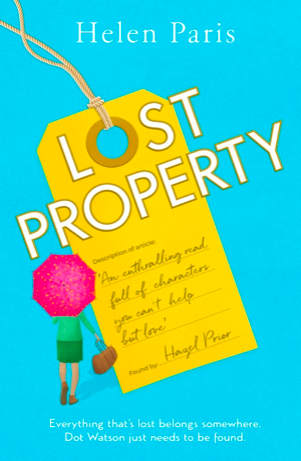“’Life gives us so much,’ Mr Appleby says, ‘chance, excitement and hope. But woven through it all is loss. If you try to pull out that thread, the whole thing unravels. Loss is the price we pay for love.’”
Dot Watson appears to be very comfortable in her job at Transport for London’s ‘Lost Property’ office. She values her work and handles each lost object with the care and deference it deserves as something which holds precious memories and important moments of a person’s life. And in many cases they are memories and moments which simply cannot be replaced.
When Mr Appleby comes in looking for a lost holdall, Dot takes it upon herself, despite the difficulties she has along the way, to reunite him with it, and in so doing, finds a Dot she left behind a long time ago.
Author Helen Paris was inspired by her own stint at the very same lost property office while conducting research for a theatre performance. She was touched by the notion that loss pervades so much of our life experience and that the objects in our possession are so often portals into who we are or were.
In her debut novel she captures this feeling of loss, of guilt, of ‘what if’, beautifully, and the reader is quickly rooting for Dot to find what she has lost while she rummages both amongst the Lost Property shelves and in her own memories.
It is touching in the same way that Eleanor Oliphant is Completely Fine by Gail Honeyman and The Midnight Library by Matt Haig were touching. It is all too easy for loneliness to take hold, for people to live in the past or in their regrets and the message all of these authors give their readers is that we should “always choose life”.
Lost Property is a heart-warming, lightly funny book whose ending is a little drawn out but other than that will leave the reader entirely satisfied.
